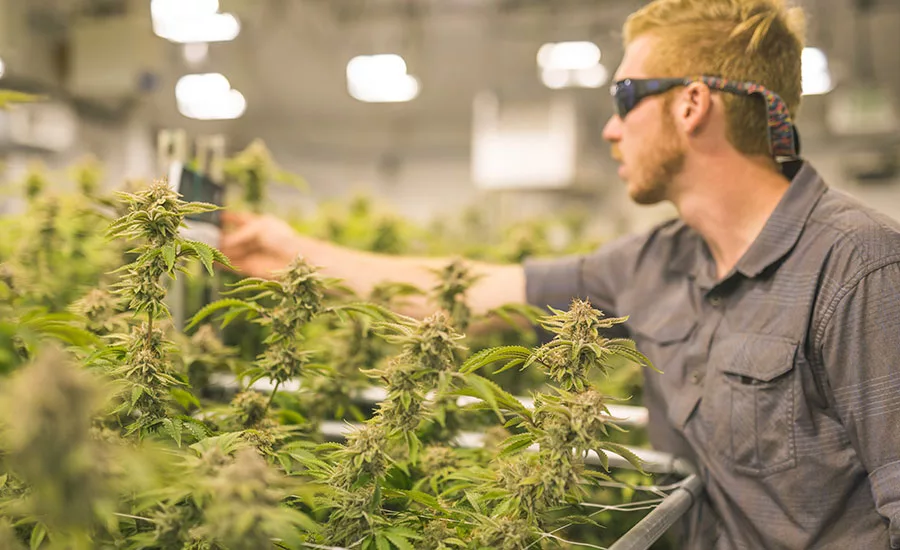Legislation Introduced to Decriminalize Marijuana

House Judiciary Committee Chairman Jerry Nadler and Sen. Kamala Harris are introducing a bill to decriminalize marijuana at the federal level.
“Despite the legalization of marijuana in states across the country, those with criminal convictions for marijuana still face second class citizenship. Their vote, access to education, employment, and housing are all negatively impacted,” said Chairman Nadler. “Racially motivated enforcement of marijuana laws has disproportionally impacted communities of color. It’s past time to right this wrong nationwide and work to view marijuana use as an issue of personal choice and public health, not criminal behavior. I’m proud to sponsor the Marijuana Opportunity Reinvestment and Expungement Act to decriminalize marijuana at the federal level, remove the needless burden of marijuana convictions on so many Americans, and invest in communities that have been disproportionately harmed by the war on drugs. I want to acknowledge the partnership in developing this legislation with my colleagues, Rep. Barbara Lee and Rep. Earl Blumenauer, Co-Chairs of the Congressional Cannabis Caucus, as well as the contributions of Rep. Hakeem Jeffries and Rep. Nydia Velazquez.”
“Times have changed — marijuana should not be a crime,” said Sen. Harris. “We need to start regulating marijuana, and expunge marijuana convictions from the records of millions of Americans so they can get on with their lives. As marijuana becomes legal across the country, we must make sure everyone — especially communities of color that have been disproportionately impacted by the War on Drugs — has a real opportunity to participate in this growing industry. I am thrilled to work with Chairman Nadler on this timely and important step toward racial and economic justice.”
The Marijuana Opportunity Reinvestment and Expungement Act aims to correct the historical injustices of failed drug policies that have disproportionately impacted communities of color and low-income communities by requiring resentencing and expungement of prior convictions. This will create new opportunities for individuals as they work to advance their careers, education, and overall quality of life. Immigrants will also benefit from the Marijuana Opportunity Reinvestment and Expungement Act, as they will no longer be subject to deportation or citizenship denial based on even a minor marijuana offense. The Marijuana Opportunity Reinvestment and Expungement Act also ensures that all benefits in the law are available to juvenile offenders.
The Marijuana Opportunity Reinvestment and Expungement Act:
- Decriminalizes marijuana at the federal level by removing the substance from the Controlled Substances Act. This applies retroactively to prior and pending convictions, and enables states to set their own policy.
- Requires federal courts to expunge prior convictions, allows prior offenders to request expungement, and requires courts, on motion, to conduct re-sentencing hearings for those still under supervision.
- Authorizes the assessment of a 5% sales tax on marijuana and marijuana products to create an Opportunity Trust Fund, which includes three grant programs:
- The Community Reinvestment Grant Program: Provides services to the individuals most adversely impacted by the War on Drugs, including job training, re-entry services, legal aid, literacy programs, youth recreation, mentoring, and substance use treatment.
- The Cannabis Opportunity Grant Program: Provides funds for loans to assist small businesses in the marijuana industry that are owned and controlled by socially and economically disadvantaged individuals.
- The Equitable Licensing Grant Program: Provides funds for programs that minimize barriers to marijuana licensing and employment for the individuals most adversely impacted by the War on Drugs.
- Opens up Small Business Administration funding for legitimate cannabis-related businesses and service providers.
- Provides non-discrimination protections for marijuana use or possession, and for prior convictions for a marijuana offense:
- Prohibits the denial of any federal public benefit (including housing) based on the use or possession of marijuana, or prior conviction for a marijuana offense.
- Provides that the use or possession of marijuana, or prior conviction for a marijuana offense, will have no adverse impact under the immigration laws.
- Requires the Bureau of Labor Statistics to collect data on the demographics of the industry to ensure people of color and those who are economically disadvantaged are participating in the industry.
Looking for a reprint of this article?
From high-res PDFs to custom plaques, order your copy today!






